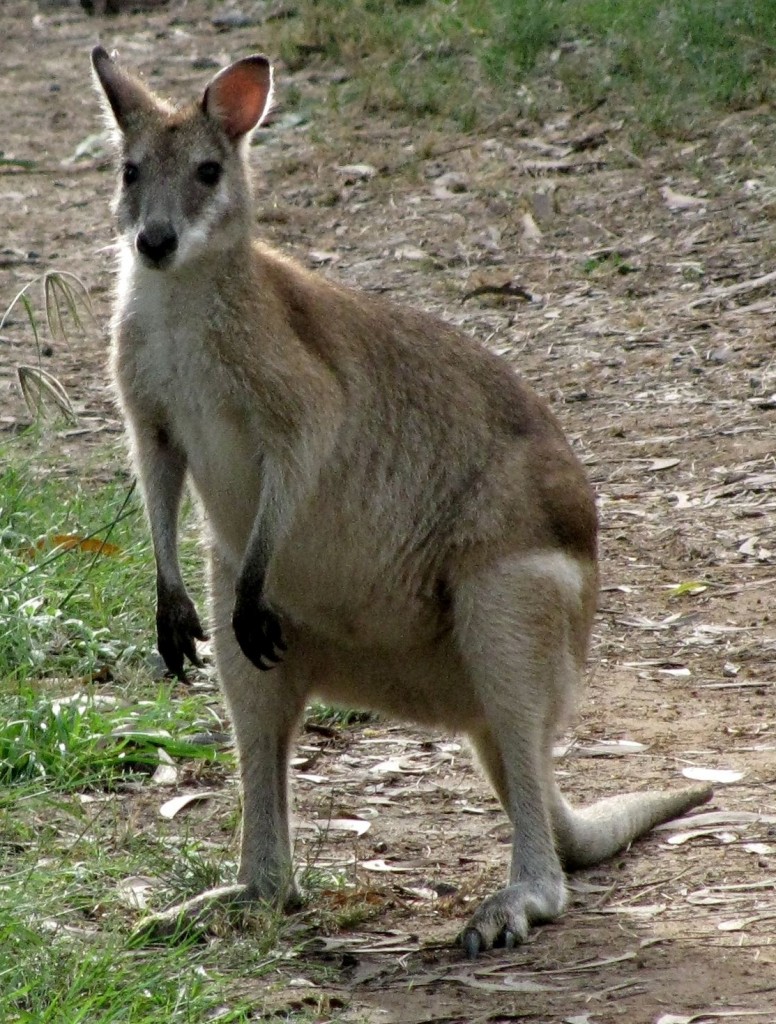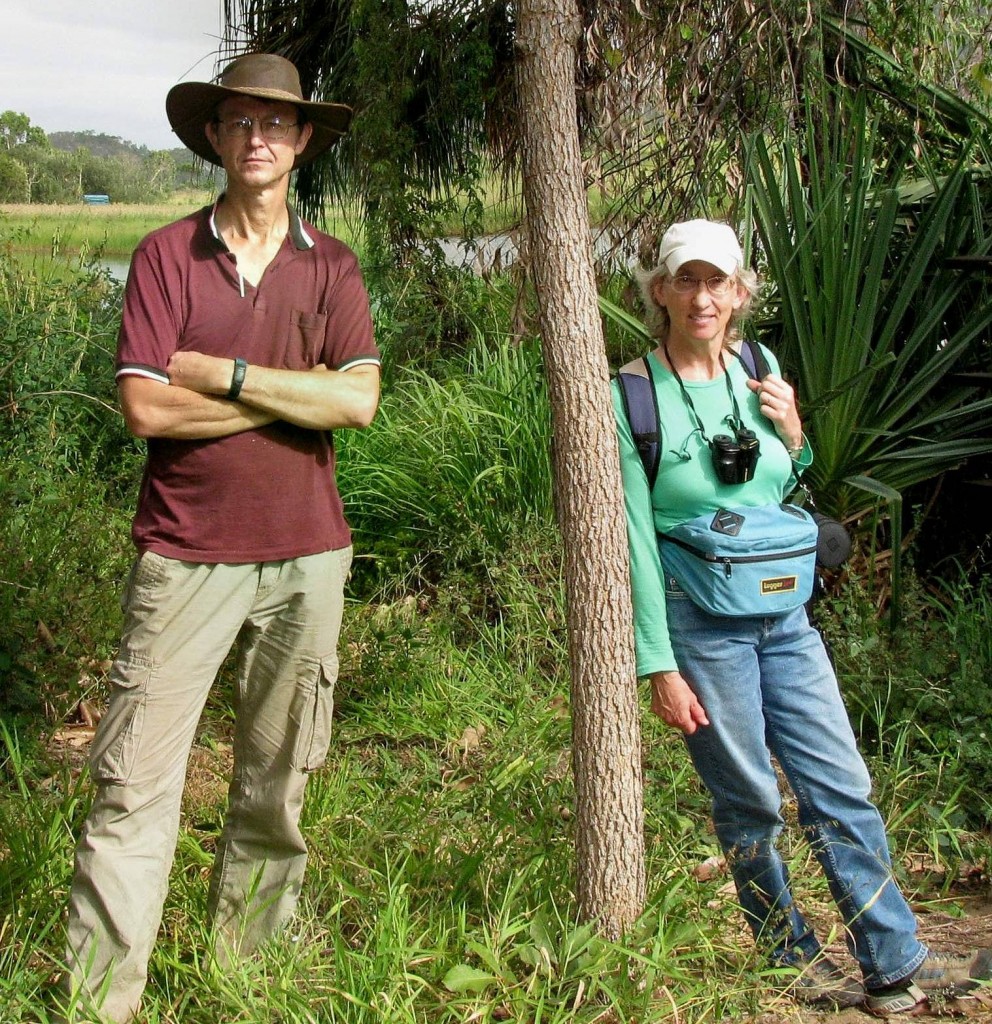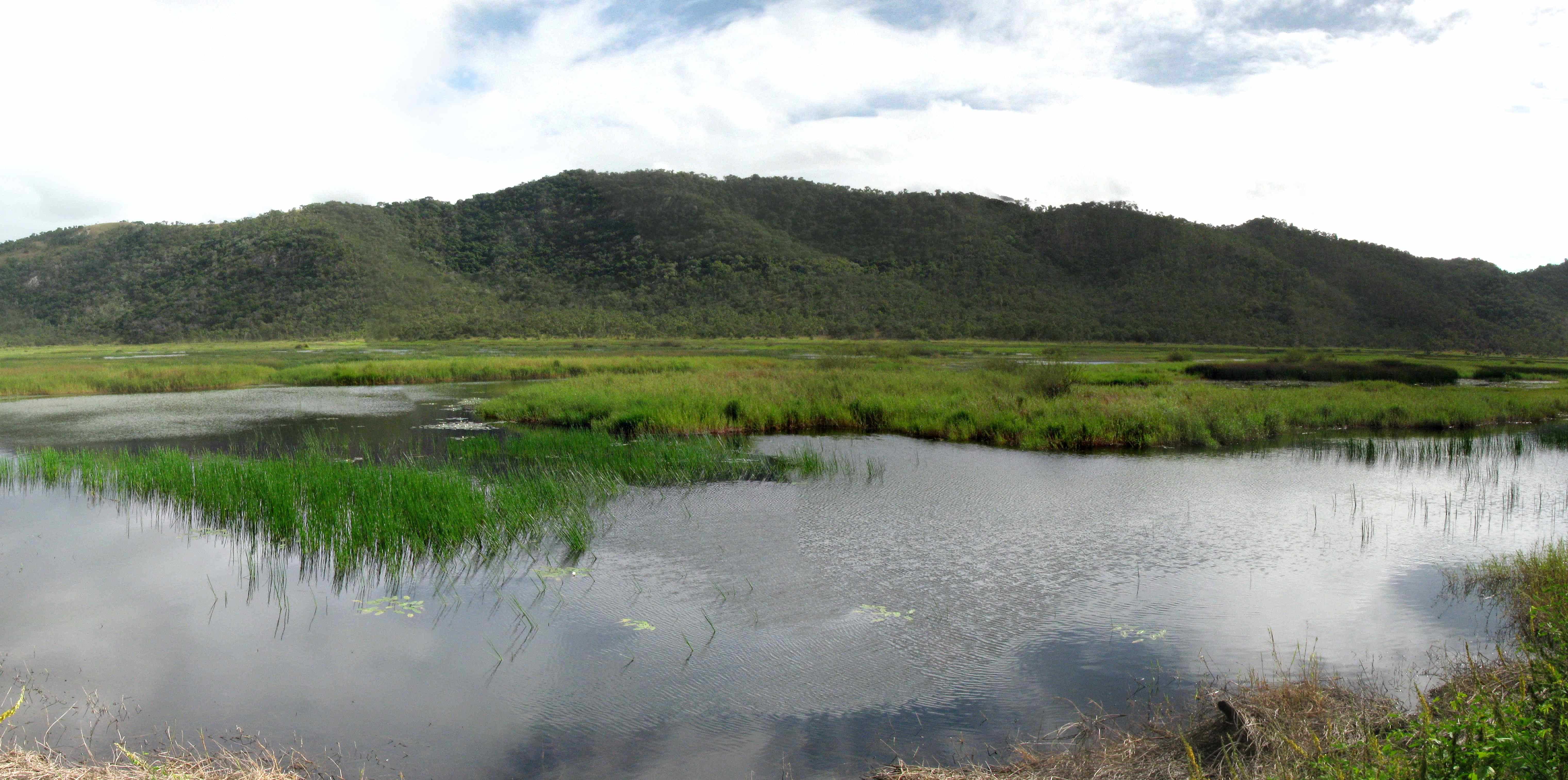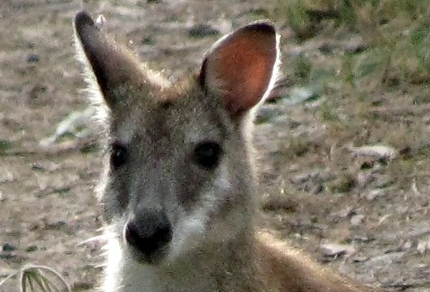In the freshness of a winter morning, I ran in shorts and singlet beside the golf course and into Bicentennial Park, revelling in the cool air and the sounds of a North Queensland dawn. Winter here is no time of forests silent except for the calls of ravens, blue jays, and chickadees; rather, the tropical winter means full speed ahead in breeding for species such as the white-browed scrubwren and grey babbler I observed on our Bundaberg/Eungella excursion last weekend, the whipbird and topknot pigeon I spotted at Paluma yesterday, and the blue-faced, white-throated, and brown honeyeaters I see or hear nearly every day here in the Townsville suburb of Rosslea. An Australian birder Vilis and I knew while living in Canada’s Yukon Territory told us he enjoyed the summers in the Yukon, rich with migratory songbirds, shorebirds, and waterfowl, but come winter, he so missed his Australian birds. Now I understand his comment.

Agile Wallaby at The Common (© Vilis Nams)
After breakfast, Vilis and I drove to the Townsville Town Common Conservation Park, hoping to spot some yellow-spotted monitors in the act of sunning themselves on the dirt road through the forest and wetland park. Ever since he returned from Western Australia, where he observed these large lizards in the desert, Vilis has wanted to hunt for them here in North Queensland, where they’re a different and more robust subspecies from those he saw in WA. However, despite driving slowly through the park, we spotted none, perhaps due to the cool, overcast weather or the unexpectedly high number of vehicles on the road. Instead, we noted several agile wallabies at the road edges, rainbow bee-eaters hunting from fence wires, and a pair of pheasant coucals, one of which dragged its long tail and wing feathers through the dirt, engaging in a dust-bath.
Since we had time, we visited the wetland observation tower, from which I spotted my first glossy ibises feeding in the shrinking wetland. Magpie geese wobbled on the wires of an old fence, creating far less graceful images than an anhinga and a little pied cormorant perched on the same fence. It still seems a peculiar sight to see geese perched in trees and on fences, a prejudice gained in Canada, where both Vilis and I have only ever seen geese on water or solid ground.

Lounging outside Jacana Hide (© Vilis Nams)
We strolled to Jacana Hide, Feeling lazy and unfettered. Our path passed near a section of freshwater lagoon in which grew tall, flowering grasses. On hearing a sharp “tick” emanating from the grasses, I imitated it. The sound ticked. I ticked. Back and forth. Vilis must have wondered what I was doing. I told him, “The Townsville birders were looking for a reed warbler at the Ross River Bush Gardens. It makes a loud ticking sound.” Creeping closer to the grasses, I continued to utter ticks and – bingo! – I spotted a small, warm-brown-coloured bird clinging to a grass stem and ticking back at me. There are times in a birder’s life when random bits of birding flotsam float to the front of the mind at completely unexpected but opportunistic moments. This was one of them, granting me my first sighting of a reed warbler – Australian bird species No. 202. I’m at July 19, eight species ahead.

Freshwater Wetland Viewed from Jacana Hide (© Vilis Nams)
Today’s birds: anhingas, little pied cormorant, magpie geese, Australian pelicans, magpie-larks, comb-crested jacanas, Pacific black ducks, masked lapwings, welcome swallows, black-winged stilts, Caspian terns, *glossy ibises, Australian white ibises, straw-necked ibises, intermediate egrets, great egret, Torresian crow, little black cormorants, pheasant coucals, rainbow bee-eaters, peaceful doves, bar-shouldered dove, rainbow lorikeets, brown honeyeaters, yellow honeyeater, nutmeg mannikins, brolgas, little egret, *reed warbler. (*denotes lifelist sighting) Also saw several agile wallabies.


